HOW THE FLETCH WASN'T WON
When push came to shove, a set of competing deadlines left writer/director Bill Lawrence confronted with a choice - stick with his hit TV series 'Scrubs' or leave the show behind to make his feature directing debut with a big-screen revival of the 'Fletch' series. And, to the surprise of many, he decided the world of features could wait, leaving Harvey Weinstein in a mad scramble to get something made before he lost the rights to the iconic franchise. Like many of his generation, Bill Lawrence got his first taste of the world of 'Fletch' when he saw the beloved 1985 comedy based on Gregory McDonald's novel about a dogged, cynical investigative journalist embroiled in a world of drugs, corruption and killers.
"I could probably still recite the movie line for line," Lawrence said.
"Young men my age watched that movie relentlessly, and I loved it so much when I first saw it that I went and read all of Greg McDonald's books. There was a huge tonal difference (between the novels and the Chase films), and I loved them on their own, too."
The love of McDonald's original books was a key selling point when Kevin Smith bowed out of adapting 'Fletch Won' - a prequel at the start of the journalist's career. Smith's exit left the Weinstein Brothers searching for a new writer/director and, with 'Scrubs' lead Zach Braff a favourite to take on the coveted role, Lawrence seemed like a natural fit to take the helm. "I say this as someone who's been hot and cold as a writer/producer in Hollywood a hundred times over, but when Kevin Smith was backing out of 'Fletch Won', I was at my youthful peak heat," he said.
"I had created 'Spin City, and I had created 'Scrubs' which was in the zeitgeist and popular with the same sort of young audience they were hoping to attract with 'Fletch'."
After transitioning from the multicamera comedy of 'Spin City' to the surreal single-camera comedy/drama of 'Scrubs', Lawrence said he felt 'Fletch' would be an excellent opportunity to expand his repertoire further.
"The lines have blurred now, to the point where you can write 'Fleabag' and then get to write a Bond film," Lawrence said.
"But then, the lines were more distinct. The first show I created was a multicamera sitcom in front of an audience, and people were surprised when I said I wanted to do a single-camera show. They were saying, 'But that (multicamera sitcoms) is what you do'. But I wanted to work on a single-camera show because it was more of a visual medium. And back then, studios were hesitant to get people like me doing that or doing an hour-long. I'd been asked to write movies before and had rewritten or punched up movies countless times. I wasn't really chasing a career in moviemaking; I had my career in television. But I felt I should jump at the opportunity to write and direct it. My nightmare version would've been taking my best shot, writing something for me to direct, and they (The Weinstein Company) didn't like me or my vision… and get someone else to direct who does whatever they want to my script. It was a foreign world to be in because, in television, the writer and creator is in complete control. But back then in moviemaking, the writer had little or no control - it was countless stories of never being invited to the set. So if I was going to get into that world, I wanted to take my best shot and - right or wrong - my best shot was with me directing it. Because I was a neophyte in that way, I knew I had to protect myself a bit - so I took less of a financial stake in it and had a clause in my contract that they couldn't use the script I wrote if I wasn't directing."
As both a fan of McDonald's books and as writer/director, Lawrence said he felt that staying true to the books was essential from both a creative and a business standpoint. "I would've thought there'd be resistance (to moving away from the Chase films), but it was received with open arms," he said.
"One of the barriers to entry for actors that were being considered for the part was that the bar had been set by Chevy Chase - he was iconic. There was a lot of fear and reluctance from actors to go up against that - they felt it was a no-win situation because audiences would say, 'He's doing a great version of what Chevy Chase did' or 'This pales in comparison to Chevy Chase.' "I wanted to do something that was closer in tone to 'Out of Sight' - comedic and fun, yet dark. We were going to be more true to the book, where Fletch is sardonic, dark and funny - but he's not wearing fake novelty teeth and calling himself Doctor Rosenpenis."
And while Lawrence was primarily seen as a comedy writer, he wasn't afraid to tap into something darker for his feature directing debut. "The things that get us into writing aren't necessarily the little boxes they want to put you in. So I wasn't intimidated by that," he said.
"When I was trying to get 'Scrubs' made, I was saying it's going to be goofy, it's going to have silly fantasies, voiceover and funny banter and then in the third episode, all three of the leads are going to get a patient, and every one of them's going to die. I remember the network saying, 'Are you really sure that's something you want to do?' I was saying you could switch tones like that. Like, I'm pretty sure that if you turn the lights down and play an indie song, it'll work. I always gravitated towards funny stories that have emotional depth and real stakes. When I was talking to writers about the type of movie I wanted to do with 'Fletch', I would talk about the kind of movies I miss now. Like 'Beverly Hills Cop', people remember Eddie Murphy doing different characters and being comedic, but when you go back and watch it, his best friend is gangland-style executed, and you realise he (Murphy's character, Axel Foley) has a pretty dark past. '48 Hours' is remembered for Eddie Murphy singing Roxanne, but it's also the film where Nick Nolte's partner is killed by his gun, he's an alcoholic, and there's this element of cop-to-criminal racism they're making fun of. "And one of the reasons I think 'Midnight Run' - which we all remember as one of the great action comedies - works is because of that scene where Dennis Farina's with Charles Grodin and says to him 'You're gonna die tonight, and then I'm going to go home and have a nice meal and kill your wife and kids.' The original 'Fletch' was fine, but nobody was in real jeopardy. I thought that (shift in tone) would be what would make people sit up and realise this wasn't just a sequel or a copy."
McDonald's original novel follows Irwin Maurice Fletcher as a rookie journalist, struggling to make a name for himself and within striking distance of losing his job (he's already been kicked off headline writing, obituaries and wedding announcements). His editor, Frank, gives him one last chance: interview high-flying lawyer Donald Habeck for the society pages about a generous donation he's about to make or join the unemployment line. When Habeck is murdered in the paper's parking lot, Fletch pursues the new story about the lawyer's killing - butting heads with senior crime reporter/workplace bully Biff Wilson. At the same time, he's preparing to get married to the (then) love of his life Barbara (known to those familiar with the series as the woman who eventually becomes Fletch's first ex-wife) while also writing an investigative piece about a local brothel posing as a health service. And while Lawrence felt many elements of McDonald's novel would work well on the big screen, a slavishly faithful page-to-screen adaptation simply wasn't possible. "The best thing in translating this is that it's the framework of a great story," he said.
"But from both a cinematic and storytelling nature, it needed more jeopardy and conflict. I kept a bunch of scenes from the novel and the crime that acted as the throughline. But I was also pushed, quite rightly, to realise that we were in a time where newspapers and newspaper journalism were becoming anachronistic, and that I had to modernise that aspect. In the screenplay, the survival of the newspaper itself was an issue. There was a subtext of a struggling paper that was leaning into the tawdry side of what it can be to stay afloat. I was trying to use what was really happening in that industry, an industry that I have friends in, as part of that screenplay. In the book, there was an organised crime figure mentioned as a possible suspect who hadn't done it. I made him more involved (in the plot of the film) and gave him an offsider because I like bad guys that still have a humane nature to them. So I created this character who's this guy's main muscle, but he had been shot a few years back. He was still a thug, but he was rolling around in a wheelchair, and whenever somebody was bothering them, he'd wheel up to them and punch them in the balls. That character's one of my favourite comedic characters, and I still haven't been able to fully realise him since."
For Lawrence, one essential ingredient while fleshing out 'Fletch Won' for the big screen was Gregory McDonald himself. "I got the chance to talk to him and shoot the shit with him a lot about how to capture the tone of the books and capture who Fletch was," he said.
"I didn't know he was already dealing with cancer at the time, and he was just such a lovely man. He once acknowledged to me that he was well aware of how the Chevy Chase movie brought people to those books who would've never seen them otherwise. And when I told him I wanted to make something that was closer to the books, I could tell he was excited and touched by that. Knowing this would make him happy put me in the place where there was all the more reason for me, as a young idiot, to say 'Let's do this'."
For casting, Lawrence's 'Scrubs' lead, Zach Braff, was being eyed for the role of the sardonic investigative reporter. "At the time, all the casting efforts were centred around finding our Fletch," he said.
"We knew that if we could get a Fletch that everybody approved of, the movie would start production. I loved the idea of casting against type and with Zach, I'd seen him in live theater, I'd seen him do dramatic scenes in 'Scrubs' and I thought he was really impressive in 'The Last Kiss'. I thought that it would be appealing to cast Zach, knowing he could do the comedy and surprising audiences with the darker, dramatic moments."
Braff, however, didn't stay in theatre for long, and Lawrence found himself in a race against time to find a lead. "I don't think movie companies at the time understood the small window we had," Lawrence said.
"We had production offices, we were meeting people, and we were reading people, and I was warning them that if we didn't get it started soon, I'd be out til next year's hiatus." Aside from Braff, Lawrence had been eyeing off a vast field of actors to take on the lead.
"It's a very old story in movies - needing to find someone correct creatively while simultaneously having 'feature lead' financial appeal. At the time, I didn't know if it would be Zach. The three guys that were really high on my list were Zach, Ryan Reynolds and John Krasinski. I was friends with Ryan, he'd been on 'Scrubs', and I liked him personally. This pre-dated 'Deadpool', and I always had the sense he could be witty and carry a gun. John was just starting to get big, and I think he's proven since that he could have done it quite well. I still have tapes of a lot of people that read that I thought would be fantastic - I talked to Dax Shepard about it, he would've been very good. Neil Patrick Harris (whose post-‘Doogie Howser' star was back on the rise thanks to the first 'Harold and Kumar' movie and the sitcom 'How I Met Your Mother') gave a great audition. Donald Faison (who played Braff's offsider Turk in 'Scrubs') had always wanted to be an action star, and he would've been awesome. The hard part was finding someone with box office appeal. It (production) was a journey that had really just begun, but we had the feeling we'd get there because we had a good screenplay, people were responding well to it. When I realised the timing wasn't going to line up, I suggested we shut down the production offices. I was hoping they could keep working on casting while I was working on 'Scrubs', and we could shoot during the next hiatus. But there was this arrogance in the movie business and they assumed I'd be like 'Oh yeah, 'Scrubs' - you know, the show that I created, was the head writer for and was executive producing - I'll just drop that and move to this. But they were under pressure too, and had to get it done quickly without losing the rights. So I said, 'Peace out, see ya', and I think that surprised everybody, and it went very quickly from 'It's happening' to 'It's not happening'.”
Even though Lawrence had officially left the project, the Weinsteins weren't prepared to accept the project was dead. "There was a small window where they (The Weinstein Company) were passing around my script for other people to direct and make," Lawrence said.
"Because my contract had a clause in it that nobody else could do it if I wasn't doing it, I got my agents to call and remind them I took the deal because nobody else would be able to direct it. But there was fine print in the contract that said nobody could do this feature if I wasn't directing, and about four weeks later, I got a call from the head of ABC. What Harvey didn't realise was that I knew all the network presidents by that point in my career. And the head of ABC said 'I just got a script for 'Fletch' written by you as a TV series with Weinstein Company covers on it, are you doing this?' They figured they could sell it as a TV script since the language in the contract was around me directing it as a feature. They hadn't made any effort to shorten it, they'd just sent my feature screenplay out as a possible TV series. I explained to him that their rights deal was out and I wasn't going to work on it. Then multiple calls started coming to me asking if I was going to work on this. Because when it comes to television, you could have the script to 'Star Wars', and if that goes to a network, they'd be more interested in cost. They'd be thinking it's expensive and will cost around six million dollars an episode, which'll end up being a $130 million investment. They want to know who's running it and can manage it, so they're not just throwing money off a cliff. So that aspect went away fairly quickly, once I said I wasn't involved anymore."
Lawrence remains keen on the world of offbeat crime fiction, however. "I'm working on an adaptation of Carl Hiaasen's 'Bad Monkey' for TV," he said.
"Like Greg, he's iconic, and I've been a huge fan since I was a kid. I've also gotten to know him really well, and he's involved in making it, which is super fun."
And, now and then, Lawrence says he still crosses paths with McDonald's work.
"One of the things that first connected me with Jason Sudeikis when I began making 'Ted Lasso' was that he was in the throes of talking about 'Fletch'. I'm like, 'Man, I can't believe people are still talking about that!'"
And now, some 15-odd years after the Lawrence-helmed version was canned, the cameras have started rolling on a new film - 'Confess, Fletch' based on McDonald's second Fletch novel, directed by Greg Mottola and starring Jon Hamm as Fletch. Lawrence maintains that in the right hands, a new series could work. "The books are amazing," he said.
"The storytelling is great, and measuring up to something that was so in the zeitgeist for young men back then has dissipated into nostalgia. The series keeps bouncing around people who are so incredibly talented, and all of us (who've been involved with 'Fletch' at some point) have one thing in common: we hope it eventually gets made and that no one screws it up."
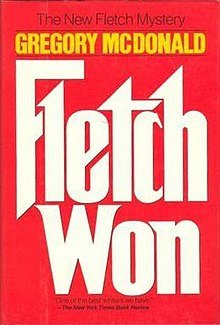
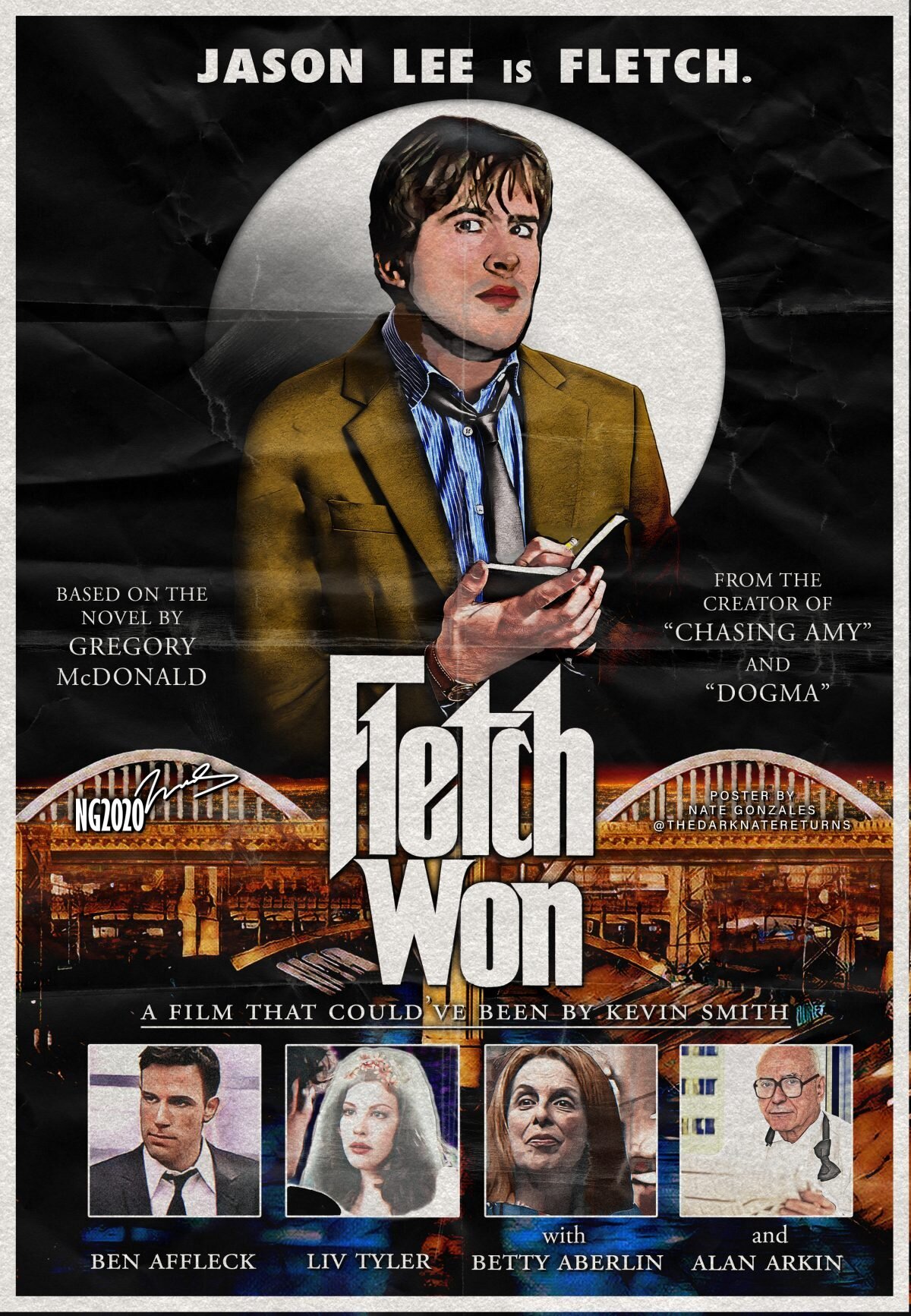
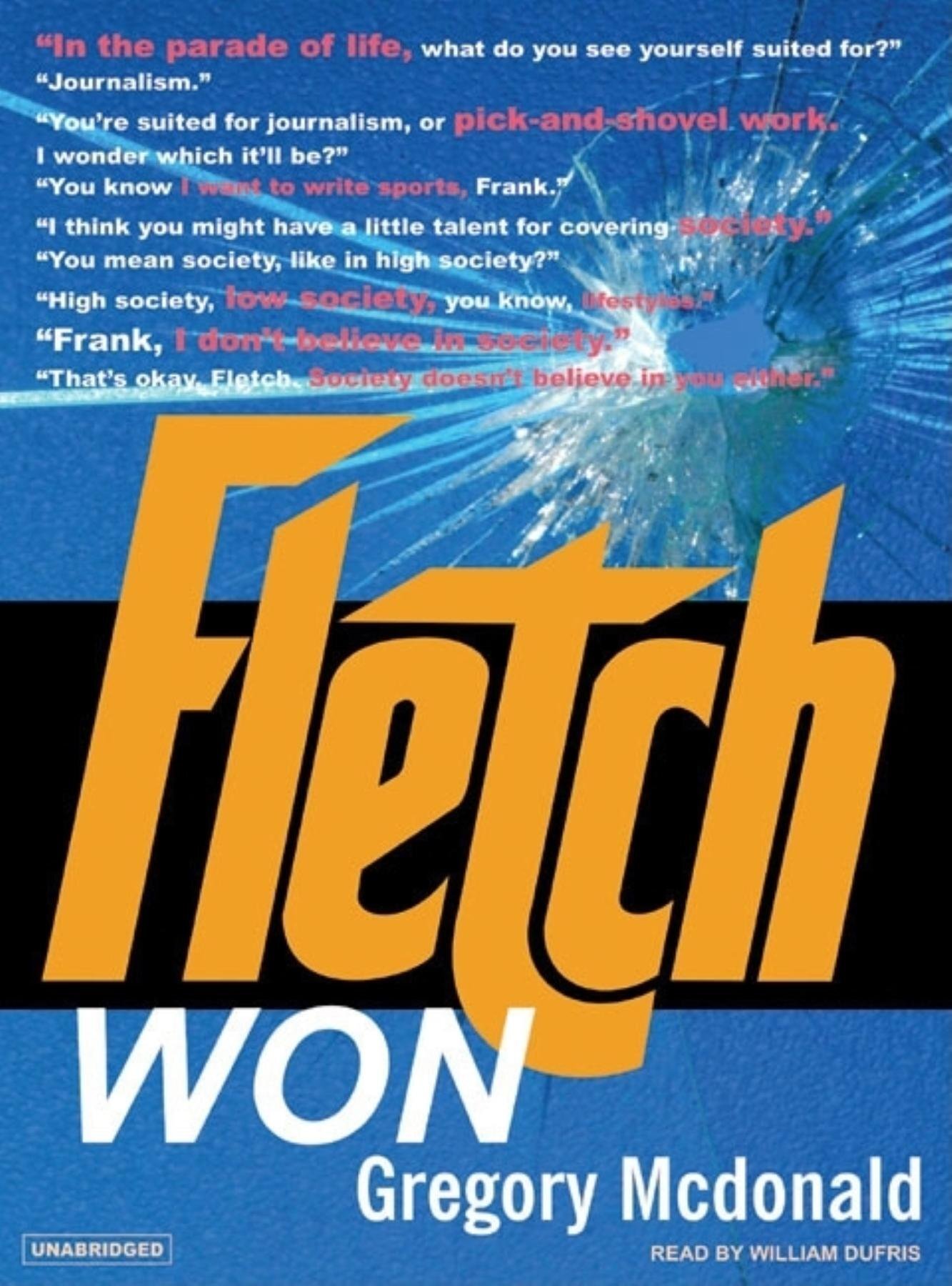
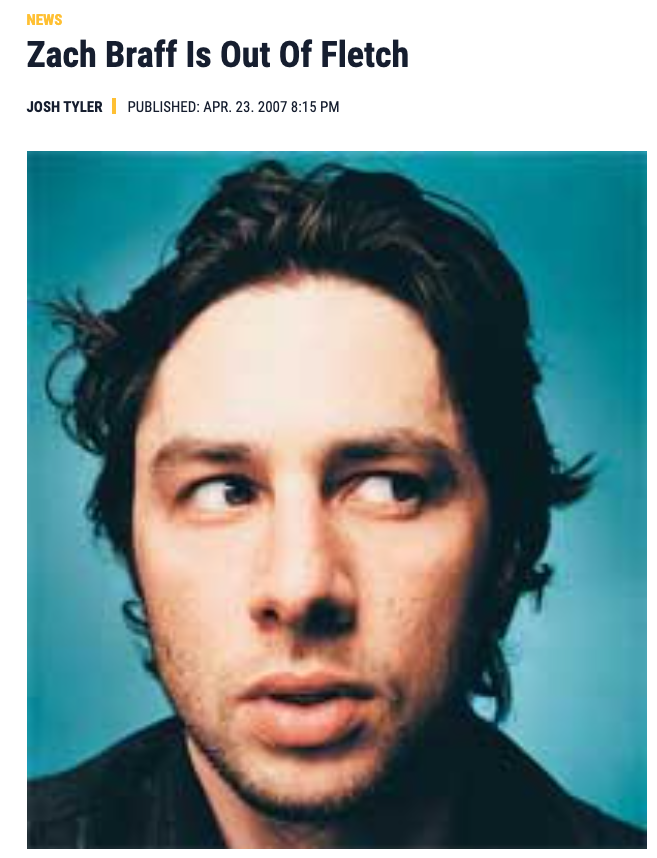
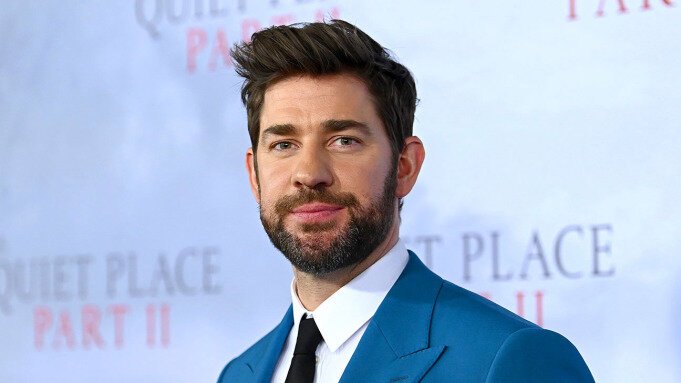
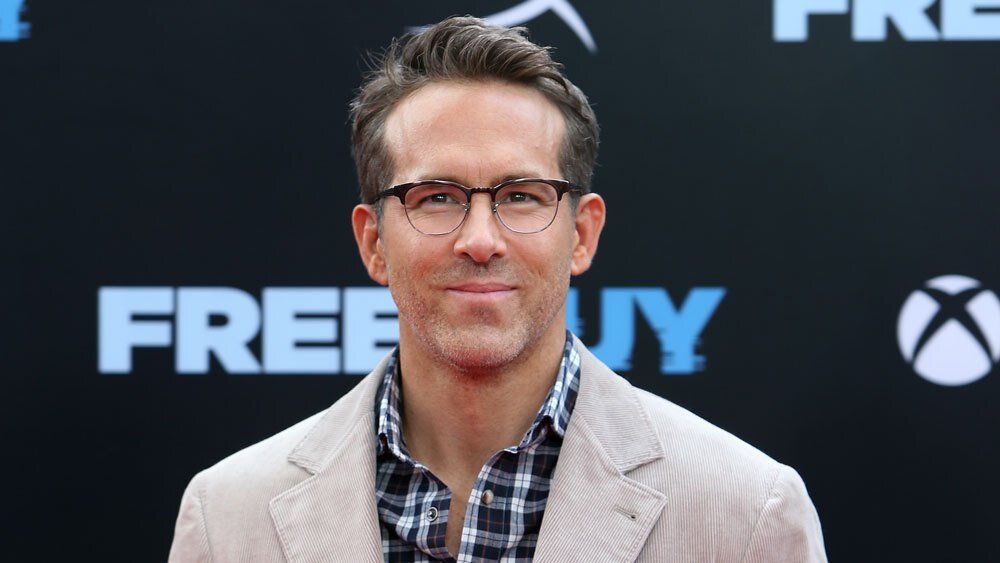
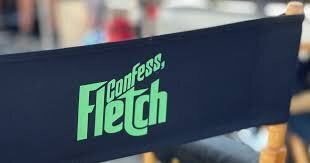
Anotherfilmnerd's earliest cinematic memory was seeing Don Johnson throw up all over a suspect in John Frankenheimer's 'Dead Bang'. Ever since, he's devoted his life to searching out cinema that's weird, wonderful and features vomit in the most unlikely of places.